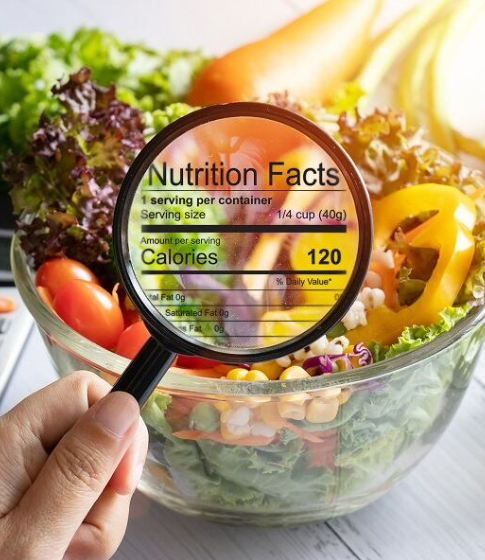In the wake of the COVID-19 pandemic, consumers are increasingly seeking supplements that boost immunity and overall wellness. With the demand for nutraceuticals at an all-time high, it’s essential for formulators to consider evidence-backed ingredients to meet consumer needs. These ingredients range from vitamins and minerals to specialty compounds, offering opportunities to develop cutting-edge supplements for better health.
The Surge in Demand for Nutraceuticals
A report from Accenture, released in April 2020, highlighted that the global pandemic significantly fueled the demand for products aimed at improving immunity and overall physical and mental health. With an eye on health optimization, consumers have shown a strong interest in ingredients like melatonin, collagen, ginger, CBD, and even basic vitamins and minerals.
Despite a focus on trendy compounds, foundational nutrition remains vital. Research has continued to uncover the health benefits of simple, widely recognized nutrients, showing that traditional vitamins and minerals are still essential for supporting immunity and overall health.
Key Ingredients for Post-COVID Wellness
Several ingredients have emerged as key players in immunity and health formulations, with vitamin D leading the charge. Numerous studies have suggested that vitamin D is instrumental in supporting the immune system and could even play a role in preventing and improving outcomes for COVID-19 patients.
Vitamin D: A Game-Changer for Immunity
Vitamin D is now regarded as a cornerstone in post-COVID supplement formulations. Research reveals that people with higher levels of vitamin D have better outcomes when battling SARS-CoV-2, the virus responsible for COVID-19. In fact, individuals with vitamin D levels below 20 ng/ml were found to have a much higher risk of contracting the virus and suffering severe outcomes compared to those with levels above 30 ng/ml.
A large body of research indicates that vitamin D significantly reduces the risk of infection and hospitalization. A letter signed by 220 scientists and doctors urged governments to increase vitamin D supplementation, recommending a daily intake of 6,200 IU for optimal health.
Zinc: A Mineral for Immune Support
Zinc is another essential mineral that has gained attention for its role in immune function, particularly in relation to COVID-19. Studies suggest that zinc supplementation can improve outcomes for patients with SARS-CoV-2, especially when administered early in the course of illness. Early interventions have shown up to an 80% reduction in hospitalization and death, making zinc a valuable addition to any immune-boosting supplement.
Zinc works synergistically with other nutrients like vitamin C, helping to enhance the body’s ability to fight infections. The recommended daily dose is 18 mg, with higher amounts potentially needed during illness.
Vitamin K2 and Magnesium: Key Partners for Vitamin D
Vitamin K2 and magnesium are crucial for optimizing vitamin D absorption and activity. Magnesium, which is required to activate vitamin D, has been shown to enhance the effectiveness of vitamin D supplementation. Studies indicate that individuals taking magnesium required less vitamin D to achieve optimal blood levels, highlighting its importance in vitamin D supplementation.
Vitamin K2 also plays a supporting role, with research suggesting that it helps regulate important metabolic processes, such as inflammation and calcification. It has been found that people with low vitamin K2 levels may experience more severe outcomes when infected with SARS-CoV-2.
Quercetin: A Powerful Flavonoid
Quercetin, a flavonoid with antioxidant and anti-inflammatory properties, has been identified as one of the most effective compounds to combat SARS-CoV-2 replication. When combined with vitamin C, quercetin’s antiviral effects are enhanced, making this combination a powerful duo for immune support. Researchers recommend a daily dose of 1,000 mg of quercetin for optimal results.
Vitamin C: A Staple in Immune Health
Vitamin C is a well-known immune booster and continues to be a popular choice for post-COVID supplement formulations. While intravenous (IV) vitamin C has shown the best bioavailability and effectiveness, oral supplementation can still offer benefits. Liposomal vitamin C, which has improved absorption compared to regular oral vitamin C, is an excellent option for boosting immunity.
Clinical trials and studies have confirmed that high-dose intravenous vitamin C can be an effective treatment for COVID-19, with recommendations ranging from 50-200 mg per kilogram of body weight, depending on the severity of illness.
Other Notable Ingredients
- Melatonin: Known for its role in sleep regulation, melatonin has also been studied for its potential to support the immune system and reduce inflammation.
- Probiotics: Gut health plays a crucial role in immunity, and probiotics are increasingly recognized for their ability to support digestive and immune functions.
- Selenium: This trace mineral is important for maintaining immune system balance and fighting infections.
- Herbal Supplements: Botanicals like elderberry, echinacea, and astragalus continue to be popular for their immune-boosting properties.
Conclusion
The post-COVID world has created a surge in demand for supplements that support immunity and overall health. By incorporating evidence-based ingredients like vitamin D, zinc, magnesium, and quercetin, supplement manufacturers can offer consumers scientifically-backed solutions for boosting immune function and improving health outcomes. These ingredients not only target immunity but also optimize the body’s ability to handle infections and promote long-term wellness.
As consumer interest in nutraceuticals grows, formulators have an exciting opportunity to create innovative, effective products that meet the needs of today’s health-conscious individuals.

Leave a Comment